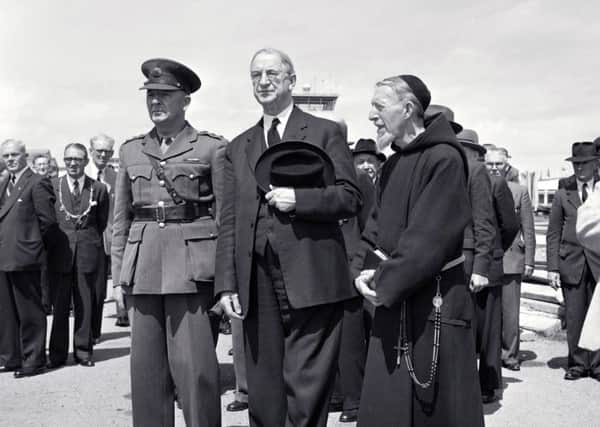There are many reasons why Protestants moved up north


When the rebellion broke out in Dublin in 1916 Ireland was the 11th richest country in the world.
Fifty years later the Republic of Ireland was number 70.
It is understandable, faced with a bleak economic future and a revised Constitution drafted in 1937 by Catholic Archbishop John Charles McQuaid and Eamon De Valera, which was anti British in tone, that Protestants would look to their future elsewhere whether that be in Northern Ireland, other parts of the UK or further afield. (It should be remembered that a representative of the Irish state sent a message of congratulations to the Nazis following the Dunkirk evacuations and fall of France in 1940).
Advertisement
Hide AdAdvertisement
Hide Ad

However, that does not explain the mass exodus of Catholics/nationalists from the Republic during the same period.
One would have thought they would have remained and gladly suffered any deprivations for the independence they craved for so long.
Yet tens of thousands left to settle in the United Kingdom, the land of their so called oppressors.
Among this exodus of Catholics/nationalists was the family of Dublin born Brendan Finucane who was to become the most decorated and youngest ever wing commander in the Royal Air Force during the Battle of Britain and who was killed over the English Channel in 1942 aged 21, having shot down 26 enemy aircraft.
Advertisement
Hide AdAdvertisement
Hide Ad

His father Andy Finucane fought alongside Eamon De Valera in Bolands Mill during the 1916 uprising in Dublin.
This would suggest that for many nationalists independence was not the utopia they believed it would be and points to the reasons why unionists in the North still prefer to remain in the United Kingdom.
A Thompson, Dungannon